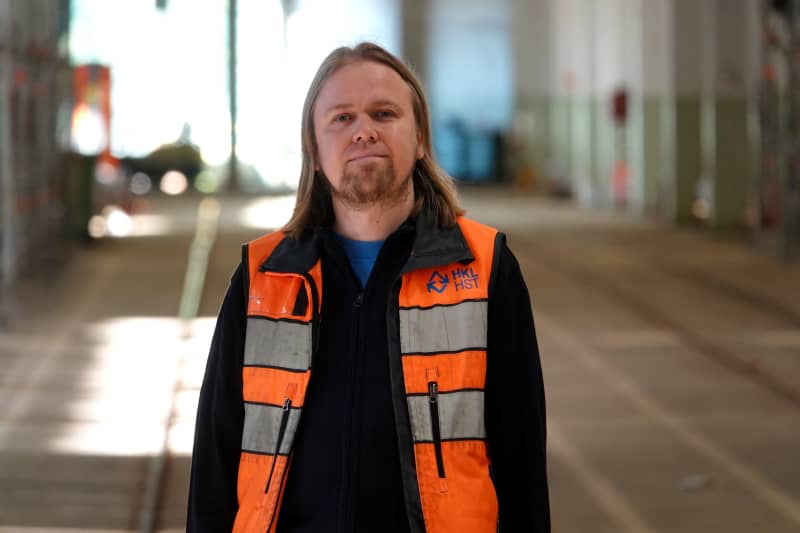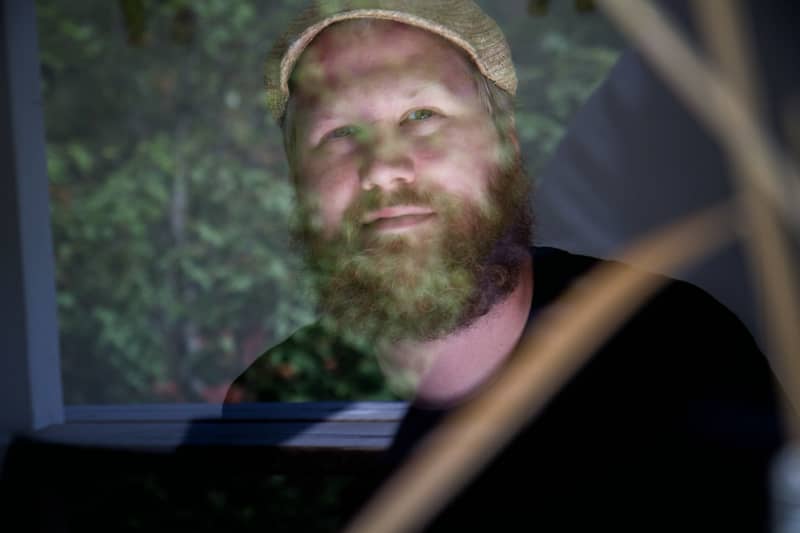The conversations of passengers and the views from the tram cab provide inspiration for the urban poet.
Poetry slam is a sub-genre of poetry, a playful competition in which participants perform their own poems within a three-minute time limit. The poems are scored by a panel of five judges chosen from the audience.
For Jokinen, the win was a pleasant surprise, but he stresses that competition is only a small part of a multi-dimensional hobby.
– I think it’s a great achievement, but I don’t want to overemphasise the competitive side of it. And you have to remember that there’s always a certain playfulness involved in poetry slamming, you shouldn’t take these things too seriously.
– The basic idea is to try to serve poetry to people, including those who don’t know that they are interested in poetry. It’s easy to come along and listen and follow along, and the competition adds its own element of interest.
Inspiration in the tram cab
41-year-old Jokinen has enjoyed writing and poetry since he was a teenager. He has been driving a tram since 2006. According to Jokinen, these two worlds fit together naturally.
– I have found a lot of common ground in them. In traffic, for example, you see and hear a lot of things that give you ideas. And there is sometimes time to write at the terminals as well.
In Finland, stage poetry was still a rather marginal phenomenon until the early years of the 21st century. Of course there were some events, but a bigger change started in 2008, when Harri Hertell founded a community that organizes stage poetry events called Helsinki Poetry Connection.
According to Hertell, the background was partly his personal situation. He had been writing for a long time, but nothing had been published yet, it was very difficult to get published.
– In practice, only published poets could make their voices heard, it was almost impossible for self-published poets and others.
According to Hertell, a broader cultural change occurred at approximately the same time, which was partly related to the coming of age of the generations born in the 80s. Operating models that were more communal and open to everyone than before made their way into the market.
– If I hadn’t started this then, someone else would have done it.
“A growth story that has been a joy to follow”
Hertell also remembers Jarkko Jokinen’s debuts very well. Ten years ago, Hertell ran an open mic club in Vastaranta’s Kiiski restaurant in Tölö. According to Hertell’s memories, Jarkko Jokinen, visibly tense and naturally insecure, also participated in these evenings.
– And this is part of the point, the tension can be seen in stage poetry! In any case, it has been a whirlwind journey to become a published and performing poet. Huge growth that was a pleasure to watch.
Hertell characterizes Joki as a modest man who does not make a number of himself. He appears with minimal gestures and avoids unnecessary banter, and thus the poem itself is possibly highlighted to his advantage.
Jokinen also usually presents his text from memory, which according to Hertell is not mandatory, but nowadays more common.

The last time Poetry Slam’s Finnish championship was decided in 2019. After the worst corona years, the event was now continued, and according to Hertell, the stage poetry front is doing well now anyway.
– For example, open mic nights and guest-based clubs are organized quite nicely in different parts of Finland. And each locality has its own special features, which is insanely great.
With his victory, Jokinen gets to represent Finland next year at both the Nordic and European championships. The texts are also presented in Finnish in international competitions, and the judges can use the translations of the texts.

